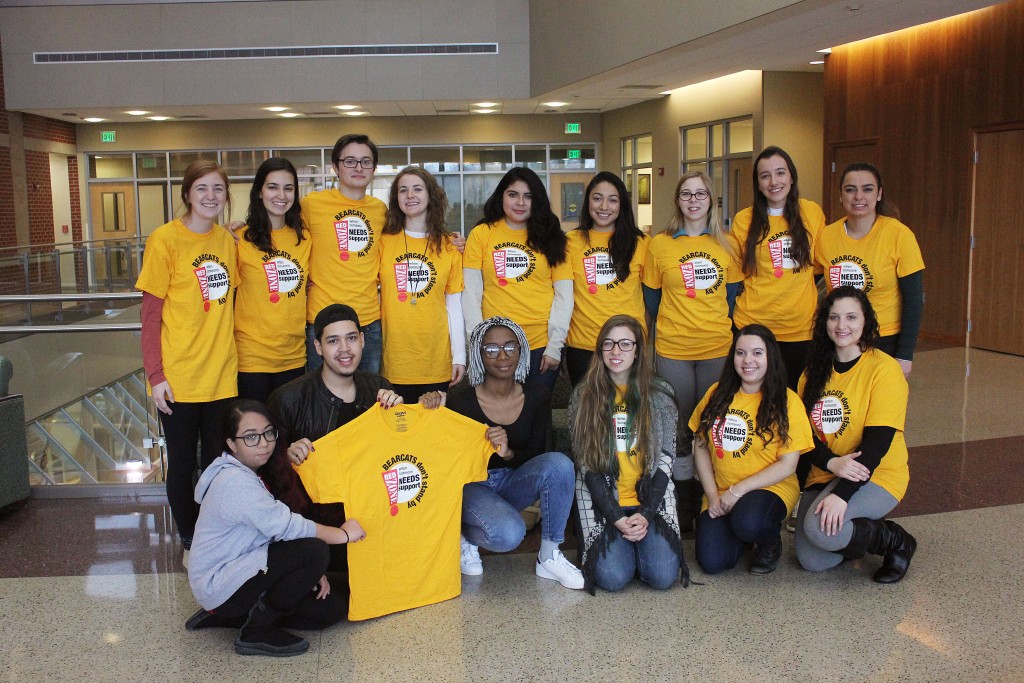
While designating a driver before a night of drinking is a social norm, designating a bystander to protect against sexual assault has yet to become a standard.
The 24 students of Activism, Feminism and Social Justice — a women, gender and sexuality studies class — are working to change that with B-Upstanders. This new initiative is aiming to combat sexual assault and harassment at Binghamton University by creating a culture of bystander intervention.
“It’s really about mobilizing people to know how to react, to know what they can do, how they should do it in different situations,” said Sophia Valente, a sophomore double-majoring in English and in the individualized major program.
Dara Silberstein, the executive director of the women, gender and sexuality studies department, is the professor of the class. According to Silberstein, the study of different activists’ methods and mobilization inspired the initiative.
”What I hope the people take away from this particular project is an experience,” she said. “Coming together as a group of people that really didn’t know each other, and talking about how to make a small change and what is necessary to make that change.”
According to Grace Clark, a student in the class and a sophomore in the individualized major program, a bystander is a general term referring to anyone not directly involved in the situation. But an upstander is someone who intervenes in a positive way.
The students participated in “active bystander” training with a representative from Green Dot, etc., an organization that helps communities implement strategies to prevent power-dynamic-based violence.
As part of training, the class learned how to prevent harassment such as unwanted sexual advances, intimidation and offensive language by distracting the perpetrator, getting directly involved or delegating the situation to the victim’s friend. In addition, the students learned how to judge intervention tactics.
“There are going to be those times when people will feel like we’re being a little intrusive,” Clark said. “And I would say, ‘that’s fine, they can feel that way.’ But overall, the message is just that we want to be there to keep people safe.”
About 15 B-Upstanders will be Downtown at SantaCon this Saturday, donning yellow shirts. The event will be a test-run for students to practice preventing harassment and to publicize the initiative. Two upstanders from the class will be at each bar in addition to others scattered throughout State Street and on-campus.
“There are also roles for people … maybe passing out water, telling people before they get on the bus to look out for us as a resource,” Valente said. “There’s a whole plethora of roles.”
The B-Upstanders will be hosting a mobilization event on December 8 in the University Union to open up the initiative to the campus population. Students will be able to rotate between tables that address alcohol and consent, what resources are available and the opportunity to role-play through different scenarios and become an upstander themselves.
According to Valente, the salient issue of harassment and assault deserves direct attention.
“It’s easier to mobilize people and push for cultural change when it’s an issue that affects the daily lives of those you’re trying to empathize with,” Valente said. “This is an issue that everyone on a college campus can relate to.”


